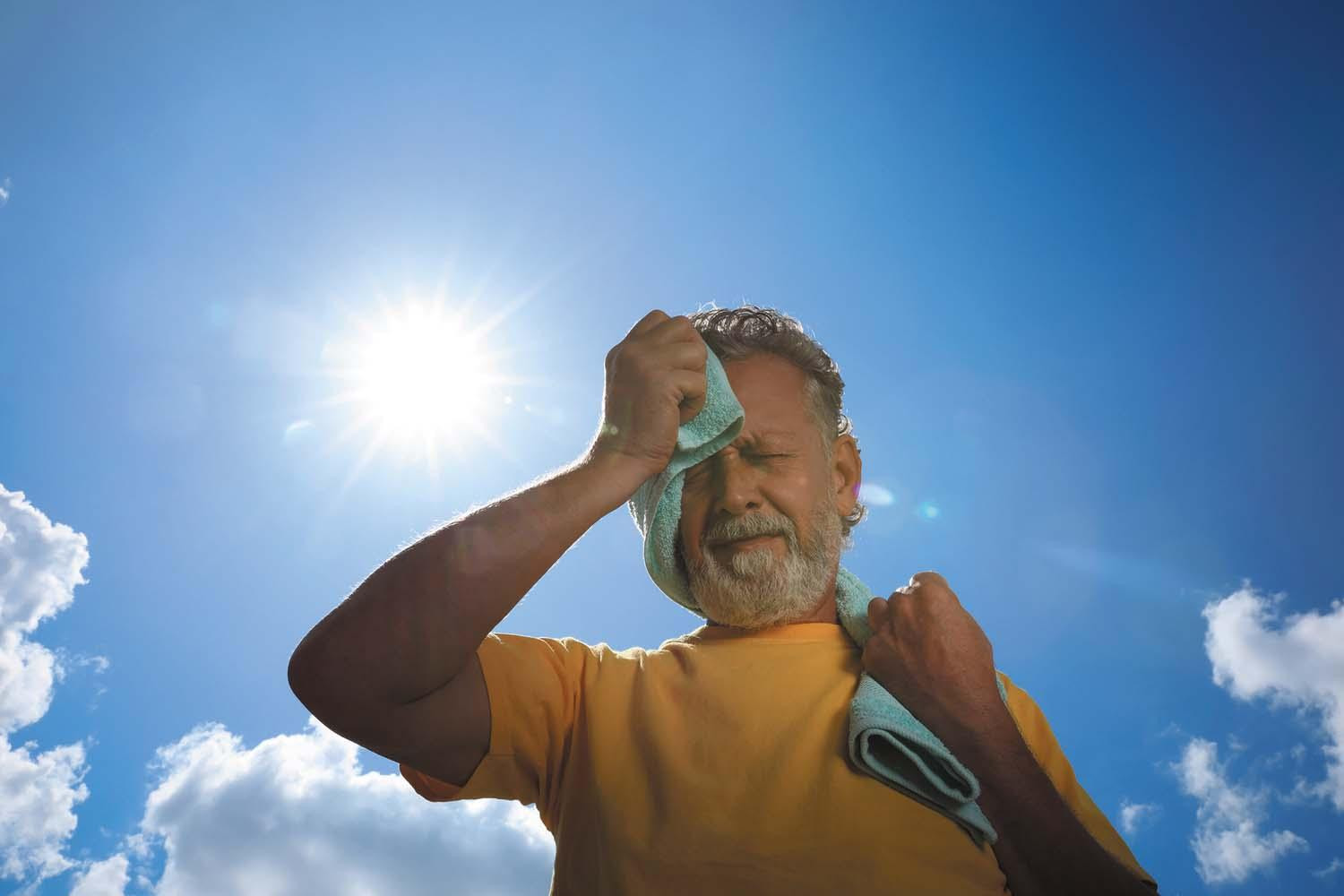
Trying to lose weight? Be careful not to lose muscle

Is your skin problem actually an autoimmune condition?

People with diabetes face higher risk of hearing loss

Antibiotic-free fixes for recurrent UTIs

Musculoskeletal syndrome of menopause: When menopause makes you ache all over

When can older women stop getting mammograms?

To lose weight, especially harmful belly fat, combine diet and exercise

Can men hold off on treating recurring prostate cancer?

The 7 types of rest and why we need them all

What are the early warning signs of cervical cancer?
Environmental health Archive
Articles
Feeling the heat
Older adults are especially vulnerable to heat-related ailments like heat exhaustion and heatstroke. The primary reason is biological, as aging bodies can't maintain a steady internal body temperature when external conditions change. Heart conditions and heart medications can add to the problem. Older adults can protect themselves from heat ailments by taking standard precautions during hot weather and recognizing the early symptoms of ailments so they can seek immediate treatment.
High temperatures may make natural mosquito repellents less effective
Mosquito repellents that rely on certain natural substances may not be as effective when temperatures reach 90° or higher. For very hot weather, people may get better protection by using the synthetic repellent DEET.
Heat wave hazards
Certain medications can leave people more vulnerable to heat-related effects or the sun's rays. The medications can raise the risk of dehydration, make people sweat too much or too little, impair the body's ability to regulate temperature, or raise the risk of getting a bad sunburn. In addition, higher temperatures may damage some medicines, including diuretics, blood pressure drugs, some antidepressants, thyroid replacement hormones, and some over-the-counter antihistamines.
When should I see a doctor about a bug bite?
Typical insect bites produce redness, itching, swelling, and pain. Signs of a more severe bug bite include hives, nausea, vomiting, fever, chills, drainage, rashes, blisters, numbness, or skin discoloration. People with any of these bug bite symptoms should see a doctor.
Healthier planet, healthier people
Our health is intertwined with the health of planet Earth, and the impacts of climate change threaten our well-being. Collectively taking small steps like eating more plant-forward meals, using bikes or public transit, and even sharing our pledges can help move the needle in a positive direction.
How to cope with worsening allergy seasons
Climate change is causing longer, more intense allergy seasons, with increased amounts of pollen. This might make it harder for people to predict when their allergies might crank up, when to begin preparing for them, and how to discern the difference between allergy symptoms and upper respiratory illness. Strategies to cope include noting daily pollen counts, staying indoors when counts are high, checking with a doctor about new or worsening symptoms, and wearing a mask when outside for more than a few minutes.
Fresh ideas to improve health habits
When New Year's resolutions aren't working, other strategies can help improve health habits. For example, people can set February goals instead of January goals, focusing on small changes in diet, exercise, or stress management. Another idea is including friends for added motivation and support, or working with an expert such as a personal trainer or dietitian. It might also help to follow eco-friendly habits that improve health, such as driving less and walking or cycling more and adopting a plant-based diet.
Drops in air pollution linked to fewer heart disease hospitalizations
A 2024 study found that when air pollution levels decreased during a five-year period in Italy, so did hospitalizations for heart-related emergencies. The results suggest that reducing air pollution could lower the prevalence of heart disease.

Trying to lose weight? Be careful not to lose muscle

Is your skin problem actually an autoimmune condition?

People with diabetes face higher risk of hearing loss

Antibiotic-free fixes for recurrent UTIs

Musculoskeletal syndrome of menopause: When menopause makes you ache all over

When can older women stop getting mammograms?

To lose weight, especially harmful belly fat, combine diet and exercise

Can men hold off on treating recurring prostate cancer?

The 7 types of rest and why we need them all

What are the early warning signs of cervical cancer?
Free Healthbeat Signup
Get the latest in health news delivered to your inbox!
Sign Up











